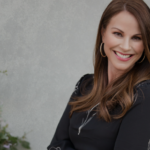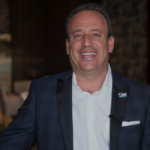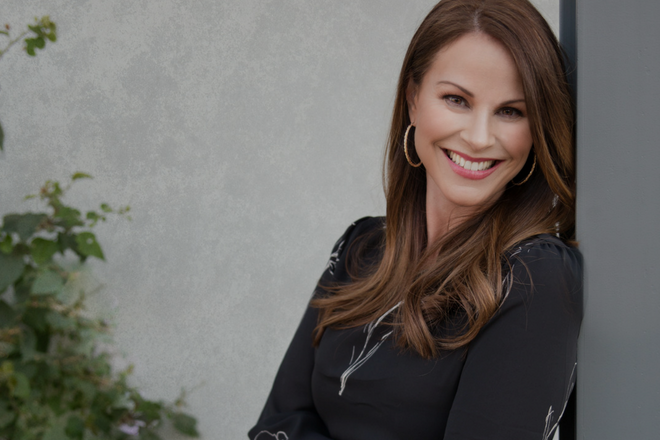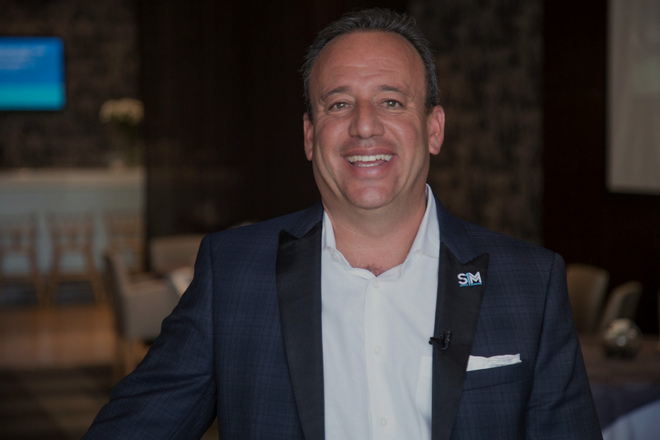“Our generation eschews the idea that you must “pay your dues.” We’d rather hack the system and get results faster. We reject society’s opinion of us as entitled. We know our strengths and we know that we’re hungry for success. But with many of the old-school systems and career fields crumbling around us, it’s time to find another path.”
Daniel DiPiazza – Entrepreneur, Author, Founder of Rich20Something; The changing landscape of business; Authoring his first book; Maturity from 21 to 30.
Segment 1: (Length :04:00) – General Updates; Introduction to Daniel DiPiazza and his journey as an entrepreneur; Starting from the bottom; Not going corporate; Not just reading but applying to real life.
Daniel’s finer points:
“I think that looking back now the story’s clear. Here’s the how the folktale goes now, okay? I’m working in this restaurant in Atlanta. I graduated school a few years earlier, college a few years earlier and I knew that I didn’t want to go back to school and learn anything else because I felt like there was nothing I wanted to do that I wanted to spend another 100K on. And I couldn’t think of another career I wanted to do.”
So that school was out, and then corporate stuff, which is not for me. I had friends who were doing it, I didn't really want to work in the office thing, so it left me in a situation where I'm like, 'Okay, I guess I'll just work these regular jobs.'
“So I worked everywhere from retail jobs to UPS with the brown short shorts, which I looked amazing in. And you know, I landed at a restaurant. And this is in Atlanta and I’m scooping these butter balls in the back of the kitchen, and my manager comes up behind me and he’s giving me a hard time about the shape of these balls.”
“He’s literally busting my balls about the shape of these butter balls. And I scooped like over 400 of them, because I had all these trays lined up and we had to get them all ready for the day at the restaurant. He’s just giving me a hard time about this and I remember thinking in my head a very distinct thought, but I said, . . .
. . . ‘You know, if I’m not good enough to complete this very, very basic task because of someone else’s estimation of my ability to do it, maybe I should figure out what I can do for myself, because I don’t want to have to be up to someone else’s measuring stick about how well I’m scooping butter balls for the rest of my life.'”
“I know it sounds very dramatic and maybe it’s a little over the top, but that’s the way I felt and that was the impetus for me to start making this change.”
The basic trajectory is this. I figured if I didn't want to work for someone else, I needed to figure out what skills I had, that I could provide, because basically when it comes down to it, business is just solving problems. Business is just finding pain points that other people have and solving them with a product or a service or an idea.
“So the first thing I did was what I thought would be the easiest thing, I just looked back at skills I’d already had in the past. One thing was I was good at SAT, ACT test prep teaching, so I started a business around that.”
“And then I moved on from that to learning how to do web design and development. And I started something around that. Then I moved on to consulting. And at each stage of this journey, of course there was a few years between each of these things, so it’s definitely not overnight, but at each stage of the journey, I learned different things like okay, how to find customers, how to price myself, how to figure out if this is even a good idea.”
Like you learn all the things tactically. And I say that to highlight the fact that although I was reading business books, I was actually going out and applying the stuff in the real world.
“Because it’s one thing to learn about in a vacuum, it’s another thing to go out and try it and have the pain of actual rejection. You know?”
“It’s one thing to read a book in two or three days, it’s another thing to go on a five year journey trial of stuff from the books. Let alone, sixteen-year journey like you, right? So over the period of years, I figured the stuff out, I started getting good at it and I started writing about it, mostly for my own self-check-in.”
“And the writing started to become more and more popular and started to get picked up by bigger places like Entrepreneur and Time and Fortune. And then I created Rich20Media on the back of that success.”
Segment 2: (Length :08:00) – Talking with Daniel DiPiazza; Having patience; Success is not overnight; Maturity in business; The differences between his 20 year-old self and almost 30 year-old self.
Daniel’s finer points:
Because of social media, because of the speed of the internet, there are a lot of case studies you can look up now where people are successful, wildly successful very quickly. And when I say successful, I'm really just talking about the amount of money they're making. I don't mean about their personal lives or even their business acumen. You can make a lot of money and really suck at business.
“So I think what’s happening is, we’re seeing these guys. Like we’re seeing Snapchat blow up. We’re seeing … Even guys like my friends Tom Bilyeu from Quest, who went from zero to a billion dollars in two or three years. We’re seeing guys like that, and I think it’s skewing our perspective on how long things take, because we see these outlier cases.”
“So there are all these factors involved and time, market, location, individual personalities, chance. And all of these things play a factor in how quickly you’re going to have success. Your consistency is the only thing that you really control. So regardless of what’s happening externally in the environment, you’re going to have to just keep going until you see the results. If you want to be successful, you don’t really have a choice.”
“So my perspective is, patience, not only is it better to adopt a mindset of patience, because it’s the only thing that we can do, we have to have patience. We can’t control how quickly things happen in a lot of cases.'”
But also, it's just much better for our own mental sanity because we're so steeped in this like get it now culture, and it's not real. Guys, it's not real.
“It is a representation of something that people aspire to, but the people who are really working are not the ones who are talking about the lambo stuff. Now I’m not saying there aren’t people who do that but at the same time, most of my friends who are really driving hard, who have nothing to do with the hustle culture, and so you just have to learn that a lot of people who are espousing those things are wannabe’s.”
“They’re wannabe’s and people who are really doing the work are just like checking their email and getting back to work, you know.”
“I mean the main thing is … And I don’t disparage myself or anyone else at this stage, but when you’re really young, when you’re in your young 20’s, and this sounds very much like something your old uncle would say, but you really … There is a big maturity gap between 20 and 30, there’s a pretty significant maturity gap for a lot of people.”
“Not for everyone, but for a lot of people. For me, I think part of it was having to go through some just really hard personal family situations and then business stuff, which is made me … It’s brought me back down to earth.”
When I made my first 100 grand, I really, really thought like oh my God, I have this business thing figured out. I have this on lock. No big deal, I could keep doing this for another 60 years. And then I got a little bit older and I started like oh, I gotta pay taxes on that? And then I'd hire people and there were systems involved.
“And every step along the way of the journey, I realized that as you continue to create businesses, more and more responsibilities are placed upon you, and leadership is hard man. It’s really hard to be a good leader if you’re not constantly working on yourself.”
“So I look back on that man seven, eight, nine years ago now, and I think you know what? You’re on the right track, you’re doing the right thing, but you haven’t really been exposed to elements too much yet.”
“I was fresh out of college, I was working at a restaurant. You know, a lot of things I thought were going to be easier than they were. Now I realize man, if you really want to stay at this, the reason why most businesses don’t work is because the owners just get tired of trying to figure things out and they quit.”
That's the main thing. There are marketplace issues, there are funding issues and staff. There are all those real issues, but at the end of the day, if the owner doesn't want to figure the next problem out and they just quit, that's when businesses stop. And so you have to have a lot of resilience. And I don't think I realized how much resilience I would have to have, to get to this point and I'm not even at the top yet.
Segment 3: (Length :10:00) – Knowing he’d always be an author; His process and journey to writing his book; The changing landscape of business worldwide; Changing up the “blueprint” for our lives.
Daniel’s finer points:
I've gone too far. This is actually my career now, so I'm not ... That would be like quitting an awesome job basically.
“That I’ve created for myself. But those doubts, they don’t go away. And I don’t want people who are listening to think that there is a certain point that you reach, as a successful person, when the doubts go away, because they don’t.”
“I’ve always known I was going to be an author. I had been writing in my Grandmother’s coat closet on a Gateway 2000 with the cow print box, remember those? And it came with a giant book of Windows ’95 CD’s, included Mavis Beacon Teaches Typing and Sim City, and I’ve been writing for a long time.”
And so I always knew I was going to be an author and ... But I, you know, it took me about three years to come up with a concept, to get an agent, get a publisher, get it big enough, to where I deserved to get it and then go for it.
“You know what’s interesting about the book too and this is something you might find if you starting writing, is because … I had written a lot of articles up to this point. Probably a few thousand articles before I started writing the book and I thought, ‘Oh, well this will be easy.'”
“You’d be like put some articles together, but it wasn’t, it was different. It was different because I wanted to have one cohesive thread of thought through the book, and it’s different than writing a bunch of different disparate articles.”
“And so it was difficult for me in the beginning, because I was very critical of my own writing and I spent a lot of time arguing internally about how things should be and I spent a lot of time over-editing myself.”
And once I let go of that process, I'm just like you know, I'm just going to dump everything I have. I went to Greece to go write a good two thirds of the book.
“I went to Greece, I locked myself up in a condo in Greece, which is one of my creative places that I go, it’s one of my favorite places in the world. And so I went to Thessaloniki and I went there and I wrote and I wrote and I wrote and I wrote and I wrote and I wrote, and actually I didn’t really even go out and see stuff.”
“I just stayed on California time, so I was up mostly the whole night. And I was writing. I felt like a real Hemingway, I didn’t kill myself in the end.”
“And I realized that the coolest part about the book, was being able to let go, because this is I had … Once I earned the right to get this book and I got the deal, I could put whatever I want in there. It’s my thing. And that was really freeing.”
. And by the time I got to the end of the book, the last third was my favorite part, because it's about my insight, it's about habits that I've used looking back that have made me more successful. And I really found my voice once I'd gotten through the first like 50 to 60 percent of it. And it felt really good to feel at home writing this thing.
“It’s also artificial time constraints on the environment. I knew I was there 10 days, and I’m not going to waste my 10 days, when I’m paid to be there, like on Facebook, you know.”
“Greece is beautiful and I would have loved to have gone sightseeing, but I wasn’t there for that. So I was pretty much up at night in a foreign country, with nobody to talk to. You’re going to do some writing.”
“If I’m being 100% honest man, I mean … So I lived in Greece in college, and so I walked around my old neighborhood just to reconnect what was going on there for a little bit on the first day. And then for the rest of it, it was mostly just sleeping, eating pastries, like I don’t smoke cigarettes, but I felt like I’m in Greece so I’m going to smoke some cigarettes.”
“And just being a true author and writing really good shit. And a lot of it didn’t even get published. I wrote probably 200 pages while I was there and a lot of it still in a document, which I’m using to pull from other things because it was just a massive brain dump.”
And the light bulb went off, when I said you know what? I'm not going to edit any of this and so the brain dump has tons of red squiggles, multiple misspellings in every line. Like I'll just start writing something that's completely stream of consciousness that I will cut off in the middle of a line. I don't care to finish it, I don't look back at it. I just go. And then I pulled the seed of this book from this massive web of thoughts.
“So I wrote part of this book in a hotel and then I wrote the last part in a hotel. Most of it was written in hotels, so you can tell right there, artificial environment is important.”
“sometimes I’ll read something and I’m like, “Did I write that?” Because I was so in the zone that I didn’t even remember writing that. You’ll notice that about peak state.”
“Before I go in, let me just say I am not anti-school. I love school and I really enjoyed college and I enjoyed learning. I’m not anti-school, so I have a part in the book where I say college is dead, but I mostly just mean that we all need to have options. We all need to have the ability to choose how we want to learn and because the world is changing now, we should have that choice.”
“But like look, the path of the economy is changing. Since World War II, Americans have been conditioned to believe that the best way to make someone of yourself, to kind of ensure your financial success, is to go to college. And our culture was promised us certain protections based on academic accomplishments, and our path was set for us.”
“We go to school, we go to more school, we get a job. Hopefully we’d enjoy that job and hopefully we get paid what we deserve, maybe not. And we get incremental promotions and we’d work hard and we move up and hopefully we get enough to support ourselves and our family.”
And this is what we've been taught in school. This is what our parents tell us. This is what we see on TV and movies, this is part of our culture right.But that's the old formula. Get a four year degree, and you're going to get happiness and a steady paycheck. But look around you. Can you honestly say that this holds true anymore?
“Right, when you look at the world’s most successful people, formal education is not always a common denominator, you know this right. Like if anything, dropping out of college may be more common. You look at the Mark Zuckerbergs of the world, you look at the Steve Jobs, the common thread among those smart people and the most successful people that I’ve seen is that, it isn’t really their ability to play nicely within the system and check off everything on the syllabus or maintain a perfect 4.0 GPA.”
“The things they have in common are their ability to think outside of the box, right, okay. And believe in themselves, when others don’t. And hustle’s a big part of that too. And not just the corny hustle that we see now on Instagram too much, but like the real hustle and the patience.”
“And so we go to school and we study things that don’t interest us and we get out, and there are not jobs. And if we’re lucky enough to get a job, we’re unhappy, we’re not getting paid what we deserve and we’re struggling. And so we spend a large portion of our adult lives fantasizing about the escape . . .”
“I actually read a survey Deloitte, which is the consulting agency, said that 44% of Millennials expect to leave their jobs within the next two years, because they’re not happy. And we just can’t do that anymore. Like I saw another one who said today, 30% of the people couldn’t afford a thousand dollar emergency and half the population wouldn’t be able to make it four weeks if they lost their job. That’s four weeks. That should scare the shit out of you.”
Segment 4: (Length :03:00) – Hustler Thought of the Day:
Our generation eschews the idea that you must “pay your dues.” We’d rather hack the system and get results faster. We reject society’s opinion of us as entitled. We know our strengths and we know that we’re hungry for success. But with many of the old-school systems and career fields crumbling around us, it’s time to find another path. - Daniel DiPiazza
GENERAL NOTES:
Daniel DiPiazza – Entrepreneur, Author & Founder of Rich20Something
- DANIEL DIPIAZZA is a millennial business mastermind and the young entrepreneur behind the massively popular career and lifestyle website Rich20Something.com.
-
He has successfully started three consecutive freelance businesses and scaled them to more than six-figures in revenue with zero start-up capital.
- He has over 250,000 followers on Instagram and 16,000-plus Twitter followers. He is a regular contributor for Time magazine, Fortune, Entrepreneur, Business Insider, Inc., Fox News, and Yahoo Finance. He lives in Los Angeles, California.
- Daniel recently launched his book Ditch Your Average Job, Start An Epic Business & Score the Life You Want, which “not a boring spiel on paying your dues, but about hustle”.
- The book will be released May 2nd, 2017 and he’s included everything in this from building businesses that matter to taking inputs from other entrepreneurs and creators from around the world that range from their 20’s to their 60’s.
###








